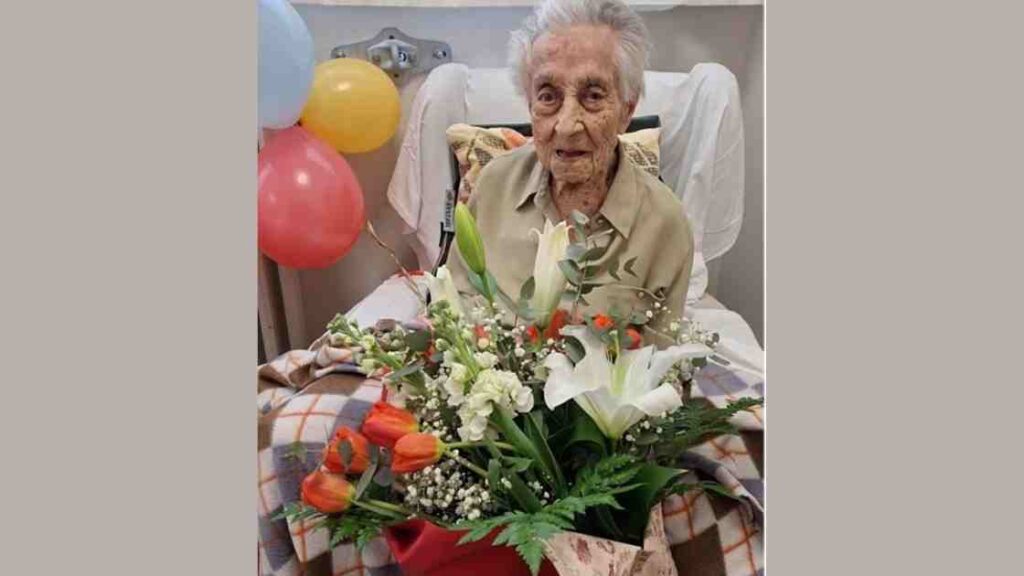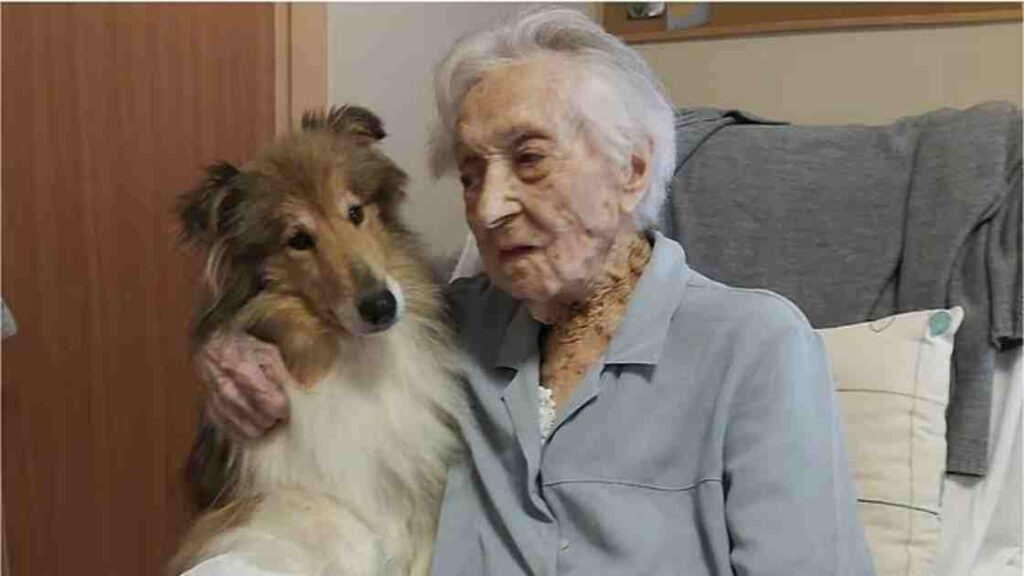Three Daily Servings May Hold Key to Extraordinary Longevity, Research Reveals
Scientists studying Maria Branyas Morera, who lived to the remarkable age of 117 as the world’s oldest verified person, have uncovered fascinating insights about the role of everyday foods in achieving exceptional longevity. Their groundbreaking research suggests that something as simple as yogurt—available at any grocery store—may have contributed significantly to her extraordinary lifespan.
The comprehensive study, led by Dr. Manel Esteller at Barcelona’s Josep Carreras Leukaemia Research Institute, examined every aspect of Morera’s biological makeup in the year before her death. Born in San Francisco in 1907, she moved to Spain at age eight and witnessed some of history’s most challenging periods, surviving two world wars, the Spanish Civil War, the 1918 flu pandemic, and even recovering from COVID-19 at age 113.

A Daily Ritual That May Have Made All the Difference
For over a decade, Morera maintained a simple but potentially powerful daily habit: consuming three servings of probiotic yogurt. Her preferred brand, La Fageda from Catalonia, contains high concentrations of beneficial bacteria including Lactobacillus delbrueckii bulgaricus and Streptococcus thermophilus—microorganisms known for their anti-inflammatory properties.
“There is very little previous evidence showing the benefits of yogurts and healthy long life, so this is completely new,” Dr. Esteller explained. The research team believes these probiotics played a crucial role in maintaining her health well into her second century of life.
The Biology of Exceptional Aging
The scientific analysis revealed remarkable findings about Morera’s biological condition. Despite her advanced chronological age, her biological markers suggested she was 15 years younger than her actual age. She lacked the typical molecular signatures associated with age-related diseases and maintained efficient cholesterol and lipid metabolism—factors strongly linked to cognitive health and longevity.
Perhaps most intriguingly, researchers discovered that the protective caps on her chromosomes, called telomeres, were extremely short. While this might sound concerning, scientists believe this characteristic may have actually protected her from cancer throughout her exceptionally long life.
Beyond Genetics: Lifestyle Factors That Matter
While Morera possessed favorable genetics—something she often credited for her longevity—the research revealed that her lifestyle choices were equally important. Beyond her yogurt consumption, she maintained several healthy habits:
She began each day with a smoothie containing eight different cereals, providing a diverse array of nutrients. Throughout her life, she avoided alcohol and tobacco completely and never became overweight. Perhaps equally important was her strong social connections—she maintained an active social life with friends and family nearby until the end of her days.
The mother of three remained remarkably healthy for most of her life, experiencing only hearing loss and some joint pain in her later years—minor ailments considering her advanced age.
Implications for Everyone
“The common rule is that as we age we become sicker, but she was an exception and we wanted to understand why,” Dr. Esteller noted. “For the first time, we’ve been able to separate being old from being sick.”
This distinction is crucial because it suggests that the negative health effects we associate with aging aren’t inevitable. Professor João Pedro de Magalhães from the University of Birmingham emphasized the broader implications: “These outliers in longevity could provide insights into how to age more gracefully.”
A Simple Strategy Anyone Can Try
Before her death, Morera made a prescient request to her doctors: “Please study me so I can help others.” The resulting research offers hope that some aspects of exceptional longevity might be accessible to everyone.
While we cannot choose our genetics, as Dr. Esteller points out, we can make daily choices about what we eat. The research suggests that incorporating probiotic-rich foods like yogurt into our daily routine, combined with other healthy lifestyle choices, might contribute to not just a longer life, but a healthier one.
The study represents the first comprehensive analysis of its kind, examining the complete biological profile of someone who achieved such extraordinary longevity. As scientists continue to investigate the mechanisms behind healthy aging, Maria Branyas Morera’s legacy may indeed help others, just as she hoped.
For those inspired by these findings, the path forward is refreshingly simple: the next time you’re at the grocery store, consider adding some probiotic yogurt to your cart. It’s a small step that, according to this groundbreaking research, might contribute to a much longer, healthier journey.






